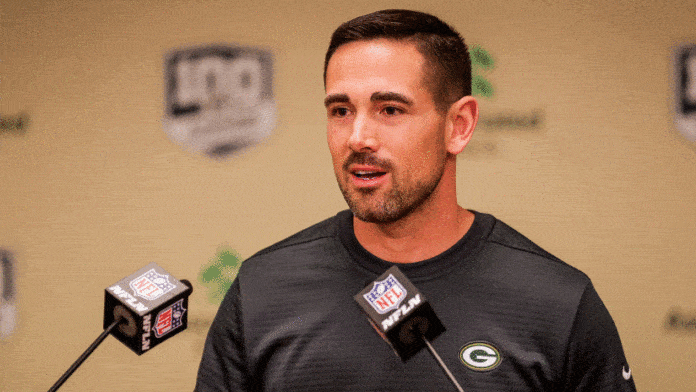Make no mistake; the Green Bay Packers could contend for a title this year. With a revamped defense and a Hall of Fame quarterback who has a fresh chip on his shoulder, there is reason to be optimistic. But to suggest the Packers enter 2019 in the same atmosphere as the New England Patriots, Kansas City Chiefs, or Los Angeles Rams is far too delusional.
How will the defense react to so many new faces?
A lot of dominoes need to fall into place for Green Bay to emerge as a contender. First, all of those assets on the defensive side of the ball that were acquired this offseason need to pan out. On paper, adding a pair of pass rushers in Preston Smith and Za’Darius Smith alongside a dynamic new safety group with Adrian Amos and rookie Darnell Savage looks mighty good. Throw in the ceiling-less Rashan Gary and the growth of Jaire Alexander and the other young corners on the roster, and Green Bay is starting to look like a legitimate defensive threat.
But how a team looks on paper means nothing in the NFL. Ask the 2011 “Dream Team” Philadelphia Eagles how far looking good on paper will get you.
How quickly will the new players adapt to Mike Pettine’s system? How much chemistry will the group have, and will they buy in? There is still too much ambiguity around this defense to go all in.
How good is Matt LaFleur?
The second variable: Matt LaFleur. Only twice in the Super Bowl era has a rookie head coach led his team to a championship. So much of success in the playoffs comes down to situational coaching. No matter how great Aaron Rodgers is in 2019 or how improved the defense is, Green Bay won’t make any noise in the league unless LaFleur can show that he has the coaching chops.
LaFleur has a few gems on his resume; mainly, working alongside both Kyle Shanahan and Sean McVay, two of the most influential young offensive minds in the NFL today. Much like a young quarterback learning from a veteran, LaFleur will be able to take what he learned in his time with those two and integrate it into his own coaching style.
That is, of course, a big positive. But it is also true that by working with McVay and Shanahan, LaFleur was given less responsibility. LaFleur was merely the quarterbacks’ coach in Atlanta, and even being the offensive coordinator in LA, it was still McVay’s offense, and it was McVay who called the plays. The one year where LaFleur was the man in charge of the offense, last season with the Tennessee Titans, their offense averaged less than 20 points a contest. It is entirely legitimate to ask if LaFleur has the experience – or even the ability – to be a high-level head coach in the NFL, let alone in his first season.
Injury concerns
Finally, and maybe the most crucial variable for Green Bay: Aaron Rodgers’ health. Many are predicting a monster year from number 12. After the disappointment this team has seen the last two seasons paired with the massive amount of criticism over his falling out with Mike McCarthy, Rodgers may come into 2019 as focused as ever. But, considering his age, size, play style, and recent injury history, the unfortunate truth is that another injury-riddled season in 2019 cannot be factored out. Whether it’s DeShone Kizer, Tim Boyle or whoever wins the backup spot for Green Bay, they won’t be able to do what Nick Foles did with the Eagles back in 2017.
Maybe LaFleur’s new offense can better protect Rodgers than McCarthy’s did the last few years. But until that proves to be accurate, there is too much risk in picking Green Bay, not knowing if Rodgers can be there the whole way.

